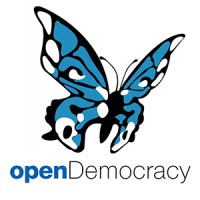Changed My Mind


Changed My Mind is The Depolarization Project’s podcast, hosted by Alex Chesterfield, Laura Osborne and Ali Goldsworthy. We ask guests to tell us a substantive issue they have changed their mind on, why and what they have learned from it.
Georg Baumert - on how nature helps open your mind, and encouraged him to change his own
Georg Baumert, head of the German Borderland Museum's environmental education division, discusses the impact of the Greenbelt, a stretch of unspoiled nature along the former East-West German border, on teaching history.
Changed My Mind

Fernande Raine on the lessons we don't learn from history - and how to change that
Fernande Raine shared her experience in Russia, where she observed a shift towards imperialism and a resistance to democratic change. She stressed the importance of intergenerational dialogue and the need for a systemic overhaul in education to foster civic skills.
Changed My Mind

Katharina Weghmann - on how she realised business schools need to teach integrity and what leaders can do to instill it
Katharina Weghmann, a partner in forensic and integrity services at EY, discussed her evolving views on the role of regulation, particularly in sustainability.
Changed My Mind

Realising America's Criminal Justice System Was Broken with Jordan Blashek and Chris Haugh
The Authors of Union: a Search for Common Ground on how an American road trip woke them up to the failings in the criminal justice system and the limitations of beloved media outlets.
Changed My Mind

Danny Finkelstein on Changing Political Allies
Danny Finkelstein, associate editor of the Times and Conservative peer, talks to us about why being able to clearly see both sides of an argument is important but can also feel debilitating in a world that craves certainty.
Changed My Mind


Back to content
About Rethinking Museums in Cities
The world is facing unprecedented social and environmental challenges that will require city administrations, policymakers, academia, artists and citizens to open up to one another and find new ways of collaborating. In this series we explore how some cultural institutions in cities, and foremost museums, on both sides of the Atlantic, are acting as useful places for solutions. By moving their traditional boundaries beyond the static viewing of culture, they help address the societal challenges of our time.
Posted in
Democracy
Partners
This series of articles is created in partnership with The Urban Activist, an independent non-profit media platform committed to advancing urban progress.

.png)

.png)




.jpg)
